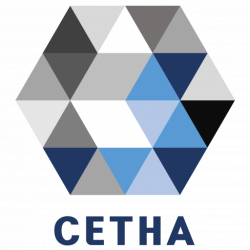| Thematic Session I: The Design of E-Learning in Canada and Hong Kong |
14:15 – 15:45 |
| When East Meets West: Universal Design for Learning in a Blended Dual Language School Leadership Program | |
| WANG, Y. (Royal Roads University, Canada) HAMILTON, D. (Royal Roads University, Canada) |
|
|
To prepare educators for cross-cultural instruction, this paper discusses the authors’ instructional design experiences in a blended dual language (Chinese and English) Masters-level Educational Leadership and Management program. The MA in Educational Leadership and Management (MAELM) is a graduate program with a focus on school leadership and school system leadership. A distinctive characteristic of this program is its dual language focus, which allows native English-speaking and native Chinese-speaking school leaders to learn together in the same cohort of study over two years. The authors describe an instructional design framework that has been adopted based on Universal Design for Learning principles and the application of this framework to practice. The reflective experiences of faculty and administrators in the design and delivery of 10 dual language courses in the program will be shared. The benefits and challenges of applying Universal Design of Learning principles in dual language learning environments will be discussed. The paper will conclude with a series of research questions that will be useful for further investigation. |
|
| Development of Courseware in Traditional Chinese Medicine |
|
| CHUNG, M. (The Chinese University of Hong Kong, Hong Kong) LEUNG, A. (HKU SPACE, Hong Kong) |
|
|
Traditional Chinese Medicine (TCM) originates from ancient China with literature spanned over two millennium. The learning of TCM involves abundant hard facts, such as the properties of herbal agents, meridian and acupoints. Students are required to memorize these hard facts before proceeding to the learning of their clinical use. Suitable learning resources are rather limited. The School of Chinese Medicine, The Chinese University of Hong Kong has tried to employ e-learning technology in the facilitation of effective learning in the past few years. Two smartphone apps projects have been conducted: (1) Acupuncture – Meridians and Acupoints, which contains text and graphics for the learning of acupuncture course; (2) Chinese Materia Medica Memorizer, which includes flashcards, e-book and quiz games for the learning of Chinese herbal agents. The production of these courseware suggested new initiatives of active learning of Traditional Chinese Medicine. The results show that these apps are welcomed by students and users. Keywords: Courseware, Chinese Medicine, Chinese Materia Medica, Acupuncture |
|
| “It Takes a Whole University …”: Dual Language Blended Learning Program Development | |
| HAMILTON, D. (Royal Roads University, Canada) WANG, Y. (Royal Roads University, Canada) |
|
|
The authors will describe and reflect on the development and implementation of a dual language (English and Chinese) blended learning version of a Masters program in Educational Leadership in a Chinese-Canadian independent education system. The MA in Educational Leadership and Management (MAELM) is a graduate program with a focus on school leadership and school system leadership. A distinctive characteristic of this program is its dual language focus which allows native English-speaking and native Chinese-speaking school leaders to learn together in the same cohort of study over two years. Another unique feature of this dual language program is its blended delivery model that features short and intensive face-to-face residencies and longer terms of online learning. The cohort members bridge cultural and linguistic boundaries, support a common program aim, and function as an inclusive learning community while learning together in both face-to-face and online learning environments. Developing and implementing a dual language, blended learning version of the MAELM program in a predominantly unilingual university involved a number of design and implementation challenges. The purpose of this paper is to articulate the key challenges related to the recruitment and selection of faculty, the development of suitable instructional strategies, the provision of bilingual learning resources, the creation of the technological infrastructure, and the establishment of appropriate online learning supports. As well, the paper will describe the challenges learners experienced in adapting to the blended learning model and experiencing online learning for the first time. Through the lens of the theoretical and practical applications of change leadership principles in a blended learning context, the authors will describe how these challenges were addressed and the broader implications for university-wide and program-specific support for blended dual language programs, especially those that feature a significant online learning component. |
|
| Using E-Learning to Support Tertiary Level English Language Learners to Revise Their Work within the Process Writing Approach – Students’ Beliefs on Its Effectiveness | |
| WU, S. (The Education University of Hong Kong, Hong Kong) MOORHOUSE, M. (The University of Hong Kong, Hong Kong) |
|
|
Process writing has long been seen as beneficial in English language education within Hong Kong as it can provide a systematic and structured way to support learners writing development giving students time to develop ideas before drafting their work and revising it. Yet it is often observed that many students’ writing attempts focus on creating a publishable piece of writing from the onset with little consideration for revising and improving their written work. Technology can be one way to support learners and help them focus on different stages of writing. Through the use of an app called, ‘The World’s Most Dangerous Writing App’ with tertiary level learners, emphasis can be placed on getting the learners ideas down and then time could be spent on revising the work. This presentation reports on a study that explores Hong Kong English students’ beliefs on the use of the e-learning tool, ‘‘The World’s Most Dangerous Writing App’ to support the writing process and the efficacy of revising at the tertiary level. Qualitative data was collected through two questionnaires designed for this study. The presenters will present their findings from the study and suggest implications on the use of technology and revising in English language writing instruction. Keywords: Writing Process, E-Learning, Drafting, EFL |

